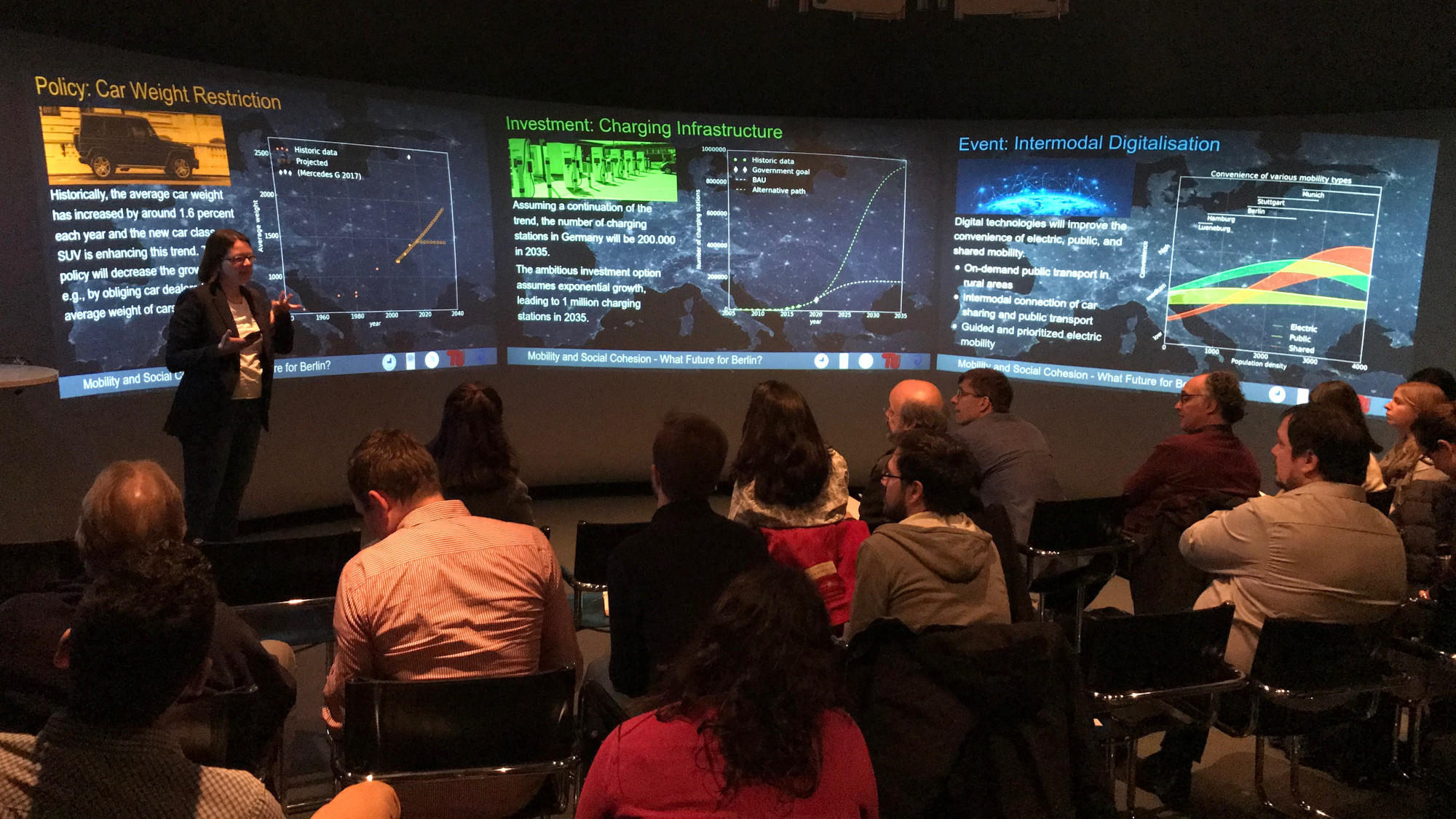Mathematics for Sustainability Transitions
Mathematics for sustainability transitions
Research on sustainability transitions can benefit from scientists and and stakeholders working together, to include practical expertise and different perspectives. Such cooperation can be facilitated, for example, by the Decision Theatre (DT) that combines empirical information, mathematical modelling and simulation, and a discussion format supported by interactive visualisation of empirical and model simulation data. Participants in DT-workshops can experiment with models, for example by composing scenarios and exploring their simulated consequences. At the same time, they can provide feedback to modellers.
Mathematical models used in Decision Theatres represent complex social, or rather socio-ecological, -economic, and -technical systems. Careful empirical grounding increases their relevance for discussions about potential futures of the real-world systems under study. Agent-based models (ABMs) are useful in DTs as they can be communicated without requiring technical knowledge from the audience, who can moreover identify with agents in the model. This is the case because an ABM represents a system at the micro-level of individual actors such as people, and simulates repeated interactions between these agents to observe the system’s overall dynamics. However, computational ABMs themselves may easily become complex and not completely understood systems.
The research group focuses on understandable agent-based modelling in the context of sustainability transition challenges. In particular, it asks how and in how far mathematical results from fields that also deal with many interacting entities can be transferred or need to be adapted for modelling human-environment systems. Application examples are a transition to sustainable mobility as well as understanding macro-economic and societal win-win opportunities of climate policy.

